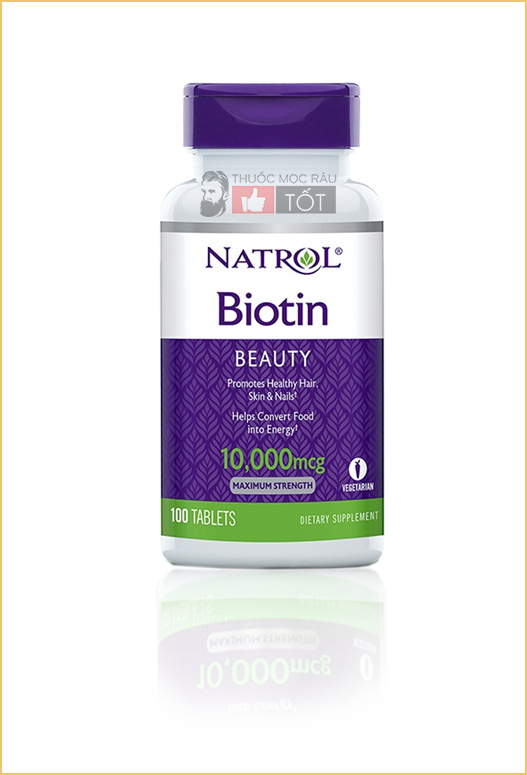

It’s also wasteful, as there’s no evidence that very high doses of biotin offer any additional health benefits. However, taking too much biotin may reduce the accuracy of certain blood tests - a topic we’ve discussed more below. So for people asking “Is 5000 mcg of biotin too much,” the answer is: no, it’s within safe parameters. Studies have found that biotin doesn’t produce adverse effects even at doses of 10 to 50mg per day. If you’ve noticed any of the symptoms above and think a biotin deficiency may be the cause, it’s important to let your healthcare provider know.Īccording to the Office of Dietary Supplements, which is a part of the National Institutes of Health, there’s no evidence that biotin is toxic to humans. In children and infants, biotin deficiency may cause lethargy, developmental delays and a lack of muscle tone (referred to as hypotonia). Paresthesias (burning or prickling sensations) However, it’s common and normal to take a small daily dose of biotin to prevent biotin deficiency and potentially promote hair health. Most people produce a sufficient amount of biotin via their digestive system to avoid any need for biotin supplements, meaning there’s no essential minimum dose of biotin - only recommended ones.īecause of this, biotin supplementation is usually only necessary if you’ve been diagnosed with a biotin deficiency, or if your diet doesn’t provide an adequate intake of biotin. However, this is a total biotin intake that includes all sources of biotin, such as common foods and cooking ingredients.īiotin is absorbed from most foods by the microflora of the large intestine. The National Institutes of Health recommends a biotin intake of 20 to 30 micrograms (mcg) per day for teenagers and adults to prevent biotin deficiency. Currently, there’s no FDA-recommended dietary allowance (RDA) for biotin, meaning there’s no widely accepted recommended daily dose. If you’ve been scrolling to find the answer to “How much biotin should I take,” it’s a tough one to pin down - but you already know that. Shop finasteride start consultation How Much Biotin Should I Take Per Day? Some medications, such as anticonvulsants, can also affect biotin production and contribute to biotin deficiency. However, a small percentage of people - in particular, pregnant or breastfeeding women, people who use alcohol frequently and individuals with biotinidase deficiency - are at risk of developing biotin deficiency. There are also small amounts of biotin in plain yogurt, oatmeal, whole wheat bread, bananas, apples and other types of fresh fruit.

You can find biotin in milk, egg yolks, and many meat and seafood products. As we said above, it’s found in many common foods, making it an easy vitamin to consume via your diet. Most people take in sufficient amounts of biotin through their diet. Your body also relies on biotin for processes like cell signaling, histone modification and the regulation of your genes. It plays a major role in several important processes within your body, including the production of enzymes that allow you to break down carbohydrates and fats. Vitamin Aġ mcg RAE = 2 mcg supplemental beta-caroteneġ mcg RAE = 24 mcg beta-cryptoxanthin Vitamin Bġ IU = 0.025 mcg ergocalciferol (Vitamin D2)ġ IU = 0.025 mcg cholecalciferol (Vitamin D3) Vitamin Eġ IU = 0.67 mg d-alpha tocopherol (natural)ġ IU = 0.The simplest explanation we can offer is that biotin is a specific class of B vitamin.īiotin, or vitamin B7, is an essential vitamin that’s found in many of the foods we eat every day. The information below provides an approximate vitamin conversion from standardized units (IU, RAE, DFE, NE) to milligrams or micrograms. Mcg = mg = microgram Vitamin Unit Conversions and Calculations IU, mcg, and Other Label Unit Abbreviations IUs provide a standardized way to calculate a vitamin’s potency across different vitamin forms. IUs are preferred rather than weight for many vitamins, because different vitamin forms can have different levels of potency. International Units (IU) are one of the standardized units used to calculate or measure vitamin potency and biological effectiveness. Why are there a variety of different terms used, and how do you convert between these different units?


You’ll find terms like mg, mcg, IU and more. When you look at a food label, you might be confused at the variety of different measurements used to indicate how much of each vitamin is in that food. Vitamin Conversions – International Units (IU) to mg or mcg


 0 kommentar(er)
0 kommentar(er)
